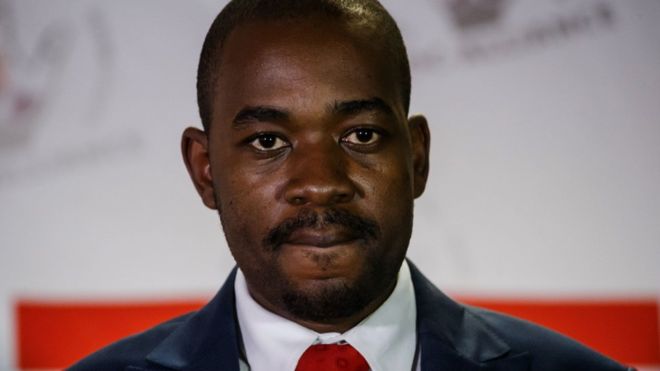Acting leader of the Citizens Coalition for Change (CCC), Professor Welshman Ncube, says that rather than serving as a tactic to defeat Zanu PF, strategic ambiguity ended up confusing party members and supporters while political opponents found a way to take down the opposition party.
Strategic ambiguity was developed by former CCC president Nelson Chamisa ahead of the 2023 elections as a tactic to prevent Zanu PF infiltration.
However, Prof. Ncube, who was the vice president of CCC at the time, said strategic ambiguity resulted in unforeseen consequences that may have divided the party.
He also claimed ‘strategic ambiguity’ began as a cliché and was not well thought out, even though it was implemented.
“There was no formal announcement of strategic ambiguity. These were clichés which were bandied about, thrown around from one event to another, sometimes almost in jest – things like siyangena nyovane. All of these clichés were popularised, used from time to time, to gel in the minds of people,” he said during a conversation held on X spaces on Sunday evening.
Since strategic ambiguity was introduced into the political discourse, Prof. Ncube said it was then perceived as a way of making it difficult for Zanu PF to ascertain developments in the opposition.
However, at the end of the day, Prof. Ncube stated strategic ambiguity did the opposite.
“It confused ourselves, our membership, and our supporters, often tripping us in the process because we were not sure if this was a make-believe thing of strategic ambiguity or a real thing,” he said.
“The negative result of strategic ambiguity was that you didn’t know the role of who, who held what position, who had what authority, hence the ability for one to emerge and say ‘I’m an interim this and that.’ Of course, our opponents, far from being overridden, found ways of negating everything we were doing, taking advantage of strategic ambiguity.”
Prof. Ncube said this confusion caused some CCC leaders to disengage as they did not know what was happening.
“Certain changes took place. First, the then president who had now designated himself champion-in-chief would not allow meetings of the standing committee, national executive, and national council to take place, emphasizing that in his view, judgment, and wisdom, positions were not important but we needed to focus on one thing – the struggle against the ruling party,” he said, claiming this made communication challenging as meetings were “no longer convening.”
Prof. Ncube said national council members tasked him to talk to Chamisa, and he had a lengthy conversation about these concerns, but no changes occurred.
“The party leadership came to see an undiscussed alteration that only Chamisa would address the rallies. We had a rally in Bulawayo at White City Stadium, with the whole leadership of CCC present where this decision was implemented but unknown to us,” he said.
“Historically, we would have the youth chairperson, the women’s chairperson speak as a warm-up. Then some of the leaders, changing from time to time, such as the treasurer, national chairman, vice president, or any one of the other VPs, could address the rally. All of that was done away with.”
Prof. Ncube noted that at a Gweru rally held after the Bulawayo rally, the CCC leadership had no space to sit as a collective but were told by security that the chairs were only for the president and the VPs.
“These chairs were not on the stand but immediately in front of the crowd, and everybody else was directed to sit on the grass floor. This caused a great deal of consternation among many people,” the acting CCC leader said.
“Many of the leaders considered this unnecessary humiliation and disrespect. Some of these were MPs, former ministers, and former mayors, all made to sit on the grass in this new approach.”
The developments at the Gweru rally, according to Prof. Ncube, marked the beginning of disgruntled CCC members saying, “‘If this is how we are going forward, the president will then largely do his rallies on his own. We will do our rallies.’”
“That is the beginning of the reluctance to attend the champion-in-chief’s rallies because of this thing which started to manifest itself at the Gweru rally. A lot more unsavoury things were beginning to happen around these aspects,” he said.
Prof. Ncube said in a “long conversation” with Chamisa, one of the requests was for a meeting of the standing committee to be convened to address some of these concerns.
One of the outcomes of their meeting was that this ‘new approach’ would be put to the standing committee so members understood this direction.
“Regrettably and unfortunately, the agreement was not implemented,” Prof. Ncube said, stating the meeting was for the leadership collective to discuss this ‘new approach’ because it was “implemented without the rest of the leadership knowing where it was coming from and why it was there.”
Prof. Ncube lamented that under Chamisa, the leadership collective did not convene to discuss issues, which is why the national council met last week Wednesday, for the first time since the party committed to forming the CCC on January 22, 2022.
“We apologised to the membership of the party for having slept on duty, having failed to use all avenues available to force a conversation on what was happening,” he said.

